In this blog post, let’s discuss the importance of socialization. Unlike many would think, socialization is an essential pillar of the Montessori philosophy. While Montessori education is often associated with self-directed learning and independence, it also fosters strong social connections and collaborative skills.
From a young age, children in Montessori environments learn how to engage meaningfully with their peers, guided by principles that encourage respect, empathy, and cooperation. This focus on socialization plays a critical role in a child’s overall development and sets the foundation for their future interactions in the broader world.
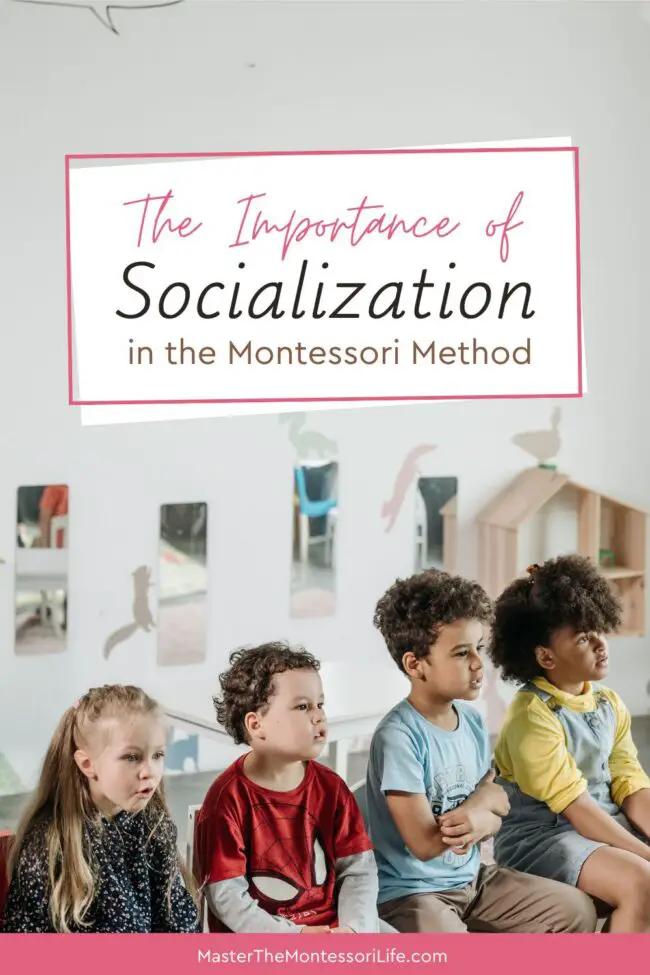


Socialization Through Mixed-Age Classrooms
One of the most distinctive aspects of Montessori settings is the use of mixed-age classrooms. Parents who homeschool: this is an excellent reason to incorporate Montessori into your homeschools! You already have mixed ages in your home! These environments allow children of different ages to interact, learn, and grow together.
Older children have the opportunity to reinforce their understanding of concepts by teaching younger peers, while younger children benefit from observing and learning from their older classmates. This dynamic promotes collaboration and mentorship, creating a natural community where children learn to respect and appreciate diverse perspectives.
Products like the Montessori Circle Time Digital Book provide excellent resources for parents and teachers aiming to enhance social opportunities during critical group activities. Incorporating structured but flexible interaction periods can further strengthen children’s confidence and communication.
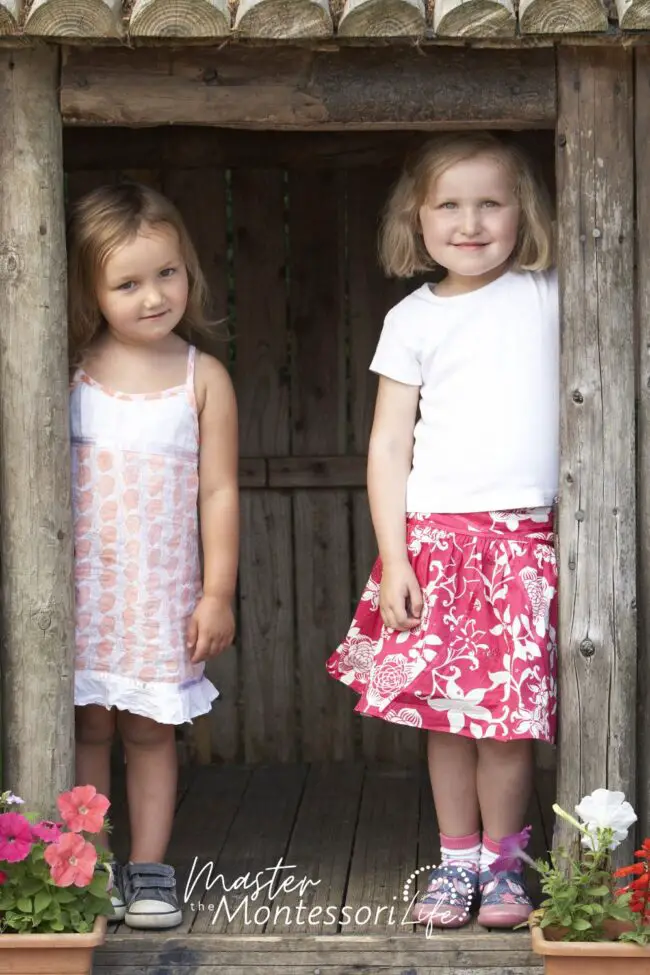
Empathy and Respect in Peer Relationships
Here is a very important part. Don’t skip it! The Montessori approach deliberately cultivates empathy and respect in all peer interactions. Lessons are designed not only to teach academic skills but also to nurture emotional intelligence.
Children are encouraged to resolve conflicts independently using respectful communication and problem-solving skills. Through practicing patience, listening, and compromise, they develop deeper empathy for others’ needs and feelings.
Works and tools such as Montessori-inspired 3-Part Cards (like the Montessori Artwork Set) can be infused into small-group activities to promote shared learning and storytelling, enhancing how children relate to one another.
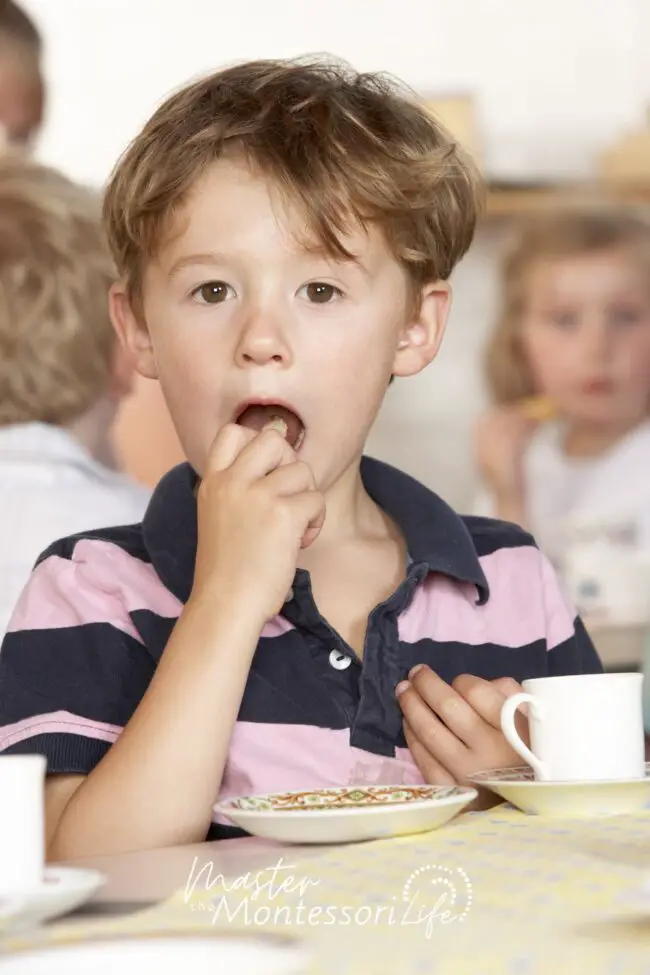
The Role of Community in Montessori Education
Our beloved Montessori philosophy places a strong emphasis on creating a sense of belonging. This is paramount in the development of the child, not only physically, but emotionally and academically.
Whether it’s classroom jobs, group projects, or family-integrated school programs, every child is seen as a vital member of the community. This fosters a sense of responsibility and accountability, while also highlighting the value of collaboration and teamwork.
Families aiming to implement community-oriented learning at home can explore tools like the Planning Montessori at Home Digital Book, which provides guidance on incorporating Montessori principles into daily routines.
Building Lifelong Social Skills Through Montessori
Montessori has many individualized works, but let me be very clear: Montessori is NOT against socialization! In fact, socialization is a core component of the Montessori philosophy. It equips children with the tools that they need to interact thoughtfully and meaningfully with the world around them.
Don’t forget that by fostering collaboration in mixed-age classrooms, nurturing empathy and respect in peer relationships, and creating a strong sense of community, children not only excel academically but also develop into compassionate, socially conscious individuals.
Montessori parents and teachers looking to deepen their understanding of this topic can explore additional resources on Master the Montessori Life or check out the Montessori at Home Bundle for practical tools to use right away. Together, we can raise children who are not only independent learners but also kind, connected, and confident individuals.
You might also enjoy these relevant topics:
- The Importance of Socialization in the Montessori Philosophy
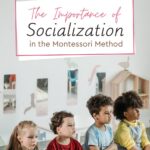 In this blog post, let’s discuss the importance of socialization. Unlike many would think, socialization is an essential pillar of the Montessori philosophy.
In this blog post, let’s discuss the importance of socialization. Unlike many would think, socialization is an essential pillar of the Montessori philosophy. - Understanding the Montessori Work Cycle
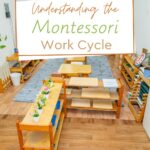 The Montessori Work Cycle is a foundational element of the Montessori Method. It promotes independence, concentration, and a love for learning.
The Montessori Work Cycle is a foundational element of the Montessori Method. It promotes independence, concentration, and a love for learning. - Why Montessori Matters from Birth: The Impact on Infant Development
 As new parents, Montessori guides, and caregivers, understanding why Montessori matters from birth can pave the way for fostering a lifelong love of learning and holistic development in children.
As new parents, Montessori guides, and caregivers, understanding why Montessori matters from birth can pave the way for fostering a lifelong love of learning and holistic development in children. - Transitioning Your Nursery to Montessori: A Smooth and Effective Approach
 Transitioning your nursery to Montessori is easier than you think. Simply follow the 3 main tips that I will give you here and you will have a Montessori nursery for your little one in no time!
Transitioning your nursery to Montessori is easier than you think. Simply follow the 3 main tips that I will give you here and you will have a Montessori nursery for your little one in no time! - What Dr. Maria Montessori is Best Known For
 I got to see it in practice and was fascinated. That is when I started to research what Dr. Maria Montessori is best known for.
I got to see it in practice and was fascinated. That is when I started to research what Dr. Maria Montessori is best known for. - Embracing Montessori Principles at Home during Baby’s First Year
 Applying Montessori principles at home is wonderful. You and your baby will love it.
Applying Montessori principles at home is wonderful. You and your baby will love it.








Leave a Reply